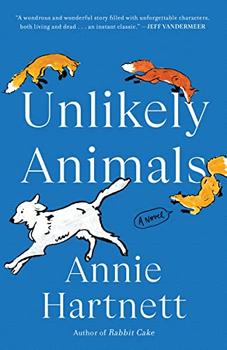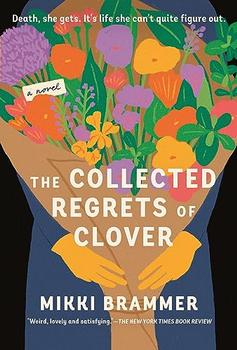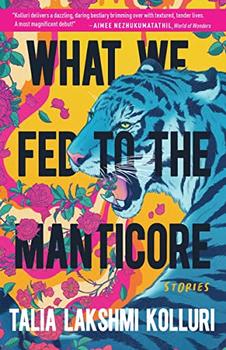Summary | Excerpt | Reviews | Beyond the book | Read-Alikes | Genres & Themes | Author Bio

A Novel
by Annie HartnettThough Everton, New Hampshire, the town in Annie Hartnett's Unlikely Animals, is fictional, it becomes real through historical research, current events and masterfully drawn characters. This combination makes for a quirky small town like those of TV shows Northern Exposure and Gilmore Girls. The multiple plotlines — Hartnett says in the afterword that she combined several works in progress to write the book — converge thanks to the strength of the characters.
The novel is narrated by the collective residents of Maple Street Cemetery, whose opinionated and witty voices deliver a delightful omniscient perspective. The primary focus, though, is on the living members of the Starling family. Daughter Emma is in her early 20s and returning home to be with her dying, delusional father Clive. She also has a secret — she's not in medical school as her parents thought. She chose that path because she was born with a magical healing touch, but her gift has since disappeared. Now, with her father dying (and without a clear diagnosis), she's afraid to admit that her healing powers are gone.
Emma was compelling to me right away, especially seeing the local celebrity her now-gone healing touch once earned her. In high school, she and her friend ran a healing business out of McDonald's, where Emma would lay hands on people and cure minor health problems. As someone from my own very eccentric small town, I remember a lot of folk remedies that circulated, including old-timers' belief that some people had birthmarks that were lucky to touch. But what will be resonant to many more readers is Emma's fear of disappointing her parents with the truth, especially when her father needs healing the most.
Clive is a loveable character — a long-haired poet, retired professor and member of a Black Sabbath cover band (named Blacker Sabbath) coming to the end of his days. The biggest symptom of his decline is that he's begun to have hallucinations related to animals. Perhaps most notably, he imagines Ernest Harold Baynes, a real-life naturalist who died in 1925 (see Beyond the Book). Baynes encourages Clive to buy an $18,000 domesticated fox online and to bring a deer inside, and all manner of tragicomic animal incidents ensue. Clive is so good-natured, it's hard to be mad at him; yet, we have sympathy for his wife, who moves out after the deer causes significant damage to their home.
From the start, it's clear that Clive doesn't have long to live, and I was curious about how the author would depict his death. The book is so lighthearted despite some serious themes, and Clive is so joyful, I couldn't imagine how exactly this would unfold. She handles it brilliantly, though, bringing the plotlines together in the end in a way far better than I'd hoped. At times, I wondered if the characters were growing or changing much, but in the closing chapters, they've learned to put their strengths together without losing their individuality.
In the afterword, Hartnett describes learning of the toll that the opioid epidemic has taken on the region where her book is set. There are several characters who have a history of addiction, including Emma's brother Auggie. Emma's high school friend Crystal has gone missing, and most assume her disappearance is related to her heroin habit and don't go looking for her. And when Emma gets a job as a long-term substitute, it's because the previous fifth-grade teacher is attending her husband's narcotics trafficking trial. I appreciated the ways in which the author incorporated that reality without demonizing or glorifying addiction. In fact, Emma only seems judgmental about Sid Wish, the former community theatre director on trial for selling drugs to her friend and brother. While the book is hardly about addiction, the author's choice to respectfully include those stories is the right one.
The ending of Unlikely Animals left me not just satisfied, but full of warmth and gratitude. I read Hartnett's afterword and was pleased to find that it was just as enjoyable as the novel. There, she explains all the historical research she did and some of the amazing coincidences that came about while writing. As a writer myself, I especially enjoyed her discussion of how she combined several works-in-progress to make this book. (Naturally, I'm going through my files to see how I can try this out myself.)
It's clear that Hartnett loves and respects her characters, as well as the history that made the book possible. And that's what makes it such a treat to read.
![]() This review was originally published in The BookBrowse Review in May 2022, and has been updated for the
March 2023 edition.
Click here to go to this issue.
This review was originally published in The BookBrowse Review in May 2022, and has been updated for the
March 2023 edition.
Click here to go to this issue.

If you liked Unlikely Animals, try these:

The Collected Regrets of Clover
by Mikki Brammer
Published 2024
Mikki Brammer's The Collected Regrets of Clover is a big-hearted and life-affirming debut about a death doula who, in caring for others at the end of their life, has forgotten how to live her own, for readers of The Midnight Library.

by Talia Lakshmi Kolluri
Published 2022
In nine stories that span the globe, What We Fed to the Manticore takes readers inside the minds of a full cast of animal narrators to understand the triumphs, heartbreaks, and complexities of the creatures that share our world.
Your guide toexceptional books
BookBrowse seeks out and recommends the best in contemporary fiction and nonfiction—books that not only engage and entertain but also deepen our understanding of ourselves and the world around us.